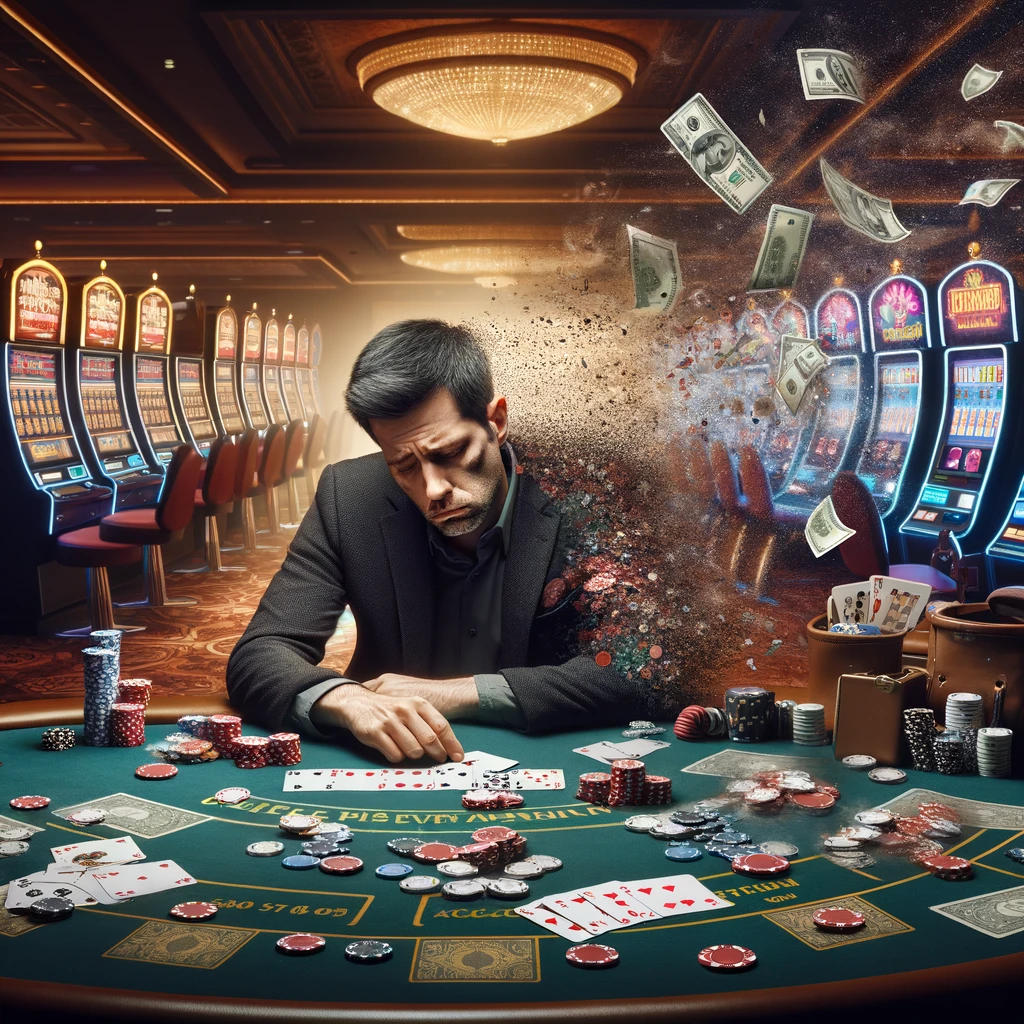In the Philippines, sabong—cockfighting—is more than just a sport; it is a cultural tradition woven into the fabric of society. The arena, where the sharp blades of roosters clash, is a place of excitement and adrenaline. Yet, for many, sabong transcends entertainment, becoming an uncontrollable addiction that consumes their lives. Such is the case of Butch, a man whose love for sabong turned into a tragic obsession with betting.
Butch’s story began in childhood. He fondly remembers tagging along with his father to the sabong pits, where he would eagerly watch the fierce battles unfold. Back then, cockfighting seemed like a harmless game—a father-and-son bonding moment filled with joy and wonder. But the seeds of fascination sown in his youth would later grow into a relentless dependency.

The allure of sabong lies in the thrill of betting and the fleeting joy of victory. For gamblers like Butch, a single win could feel like conquering the world. He recalls the day he won 36,000 pesos, just in time for his children’s birthday. That night, he felt like a king, the champion of his own destiny. But gambling is deceptive. A win today fuels an expectation to win again tomorrow, and when losses come, they are quickly dismissed with a desperate hope: “Next time, I’ll win it back.”
The human mind struggles to resist gambling because it plays on two powerful instincts: the desire for success and the illusion of control. When a gambler wins, the dopamine rush tricks the brain into chasing that euphoria again. When losses pile up, they convince themselves that persistence will eventually turn the tide. This cycle of hope and despair creates a dangerous trap—one that Butch fell into, deeper and deeper with every bet.
What started as a hobby became a crippling addiction. Butch poured his time, energy, and resources into sabong. While his prized roosters lived in spacious, well-kept enclosures and dined on expensive supplements, Butch himself resided in a cramped, poorly maintained house. His family bore the brunt of his obsession. His wife, Lorine, left for Hong Kong to work as a domestic helper, struggling to support their children. Meanwhile, Butch’s debts grew out of control, reaching over 2 million pesos.
Even when Butch left for Dubai in search of a fresh start, sabong continued to haunt him. Despite gambling being strictly forbidden in the UAE, he discovered an underground cockfighting ring hidden inside a condo unit. “We knew the risks,” he admitted, “but I just couldn’t stop myself.” The fear of arrest didn’t deter him; the lure of sabong was stronger.
Gambling, at its core, is a zero-sum game. For someone to win, someone else must lose. And in the long run, the odds are always against the gambler. Butch, like so many others, failed to see this truth. He gambled away savings, borrowed recklessly, and even sold family belongings just to place another bet. Each loss pushed him deeper into despair, yet he couldn’t resist the false hope of winning it all back.
Sabong, once a cultural pastime, had become a destructive force in Butch’s life. The principle of “too much of anything is bad” was painfully evident. The same passion that once brought him joy now tore his family apart. His wife grew distant, his children were left in the care of relatives, and his dreams of building a better future crumbled before his eyes.
When confronted with his actions, Butch admitted his mistakes but claimed that change was not easy. “I know I need to change, but it takes time,” he confessed. His family, though hurt and angry, still hoped he would overcome his addiction. They arranged counseling sessions for him, encouraging him to face his problem head-on and take responsibility for his life.
Butch’s story mirrors the experiences of many who fall prey to gambling addiction. It highlights the psychological mechanisms that make gambling so hard to resist: the chase for victory, the denial of losses, and the illusion that the next win is just around the corner. Yet, as sabong has shown, the cost of such addiction is devastating—not just to the individual but to their loved ones as well.
In the end, Butch took the first steps toward recovery, seeking support from his family and committing to change. He acknowledged the pain his addiction had caused and vowed to rebuild his life. “If I could turn back time,” he said, “I would undo the mistakes I made. Gambling took everything from me, but I still have hope for a better future.”
Butch’s story serves as a stark reminder of gambling’s double-edged nature. While sabong remains a cherished tradition, it must be approached with caution. When passion becomes obsession, and entertainment turns into addiction, the consequences can be irreversible.
For those still caught in the cycle, Butch’s journey offers a lesson: true change begins with acceptance. The path to recovery may be long and difficult, but with the support of loved ones and the will to change, a new beginning is always possible.
